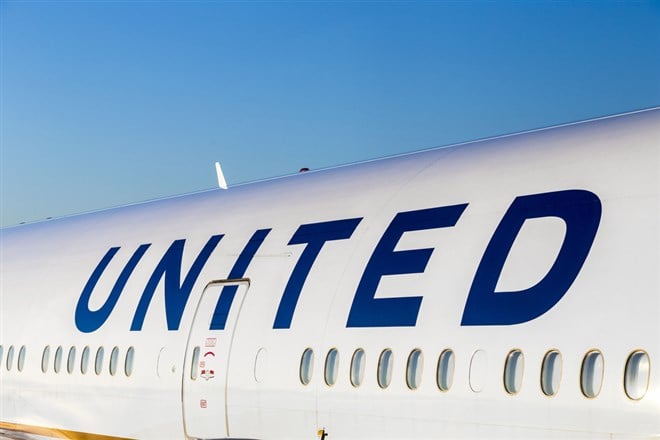
United Airlines (NASDAQ:UAL), a leader in air travel, slipped almost 4% in premarket trading today, though a rally could be seen through much of the morning. The biggest reason behind the United slump hit several airlines as well as several cruise lines: a growing concern over the Delta variant of Covid-19 and what responses would be taken as a result. Financial analysts are expressing much that same caution as well with many urging no further purchases of United Airlines stock.
Covid-19 Market Conditions Return as Delta Makes Inroads?
The rise of the Delta variant of Covid-19, which has been shown to be more contagious but less potent than its predecessor, is causing a great deal of concern over what kinds of restrictions will be called into play in order to combat it.
If we find ourselves back in a similar situation as the previous, it's a safe bet at least some states will find businesses closed once more and businesses will be back in conditions like those seen back in April of last year. The exact response to these conditions are unclear, especially given how much conditions have changed in the interim. We have vaccines and treatment options that we didn't have before, yet we have little information on how the Delta variant will respond to these.
This uncertainty is sparking a chain of fallout across multiple industries; not only have other airlines also seen losses in premarket trading—both American Airlines (NASDAQ:AAL) and Delta Air Lines (NYSE:DAL) both saw losses therein, but both saw at least some recovery in this morning's session—but we've also seen losses running through the cruise ship market.
This uncertainty also comes at a difficult time for airlines like United; TSA checkpoints reported that passenger numbers are about 20% under what they were at the same time in 2019, suggesting a recovery in the making. Additionally, American Airlines reported flying twice the number of flights it ran for the July 4 weekend in 2020, with three times the number of passengers. United was recently spotted expanding its fleet as well, placing a substantial order with Boeing (NYSE:BA), adding a combined 207 new planes to its fleet split between Boeing and competitor Airbus (OTCMKTS:EADSY).
How Do Financial Analysts Feel About United?
The uncertainty gripping the larger market right now isn't lost on the financial analyst pool, as our latest research discovered. Right now, the consensus rating for United stock is a “hold”, and that “hold” has been in play for the last two years, keeping the United Airlines stock forecast much the same as it has been all along..
A year ago, United had 10 “buy” ratings, seven “hold” and two “sell” to its credit. Six months later, that shifted to 10 “buy”, seven “hold” and four “sell”. Today, meanwhile, we stand at eight “buy”, five “hold” and four “sell.” While sell-side pressure has increased from a year ago, it's maintained its level over the last six months. Hold pressure has dropped, but so too has buy, which when aggregated together leaves us at roughly the same point we were a year ago.
United price targets, meanwhile, occupy a broad range. The current consensus price target is $57.47, made up of a high of $78 and a low of $32. With United seen trading today around the $50 mark, there's still some upside potential on hand here.
Recent developments have been comparatively positive. Wolfe Research, back in mid-June, offered the latest measure when it upgraded the company's stock from “peer perform” to “outperform.” Citigroup raised its price target from $65 to $67, and Morgan Stanley hiked the target from $65 to $70. MKM Partners, meanwhile, initiated coverage on the company at a “neutral” rating with a price target of $65.
Already, some less-formal analysis has come out in favor of the company. Trefis, just about a week and a half ago, came out with a report suggesting that, if investors were to overlook the obviously special case of pandemic-related losses, the company could be in line for strong gains. Additionally, another report suggested several key factors were in place that would send the stock upward further. The uncertainty in the market is likely short-term; we'll have more answers about the Covid variants and the government responses to these variants eventually.
Companies in This Article: